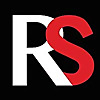ARTICLE AD BOX

Chinese exporters have already found a workaround to President Donald Trump's sweeping tariffs by shipping their goods through third-party countries to conceal their true origin.
The economic giant has responded to Trump's 145 percent tariffs on Chinese imports by slapping 125 percent duties on U.S. goods, but Chinese social media platforms are filled with ads offering “place-of-origin washing” to get around those steep levies, reported the Financial Times.
“The tariff is too high,” said Sarah Ou, a salesperson at Baitai Lighting. “[But] we can sell the goods to neighboring countries, and then the neighboring countries sell them on to the United States, and it will reduce.”
ALSO READ: ‘Pain. Grief. Anger’: Families heartbroken as Trump backlash smashes adoption dreams
U.S. trade laws require goods to undergo a “substantial transformation” in another country to become the new "origin," but social media ads are offering "smooth customs clearance" with origin-washing services.
“The U.S. has imposed tariffs on Chinese products?" read one ad. "Transit through Malaysia to ‘transform’ into Southeast Asian goods!”
Malaysia and South Korea have emerged as hotspots for the practice, and the latter nation's customs agency said it found $21 million worth of goods with falsified origins in the first quarter of this year, with most of them coming from China and nearly all bound for the United States.
“We are seeing a sharp increase in recent cases where our country is used as a bypass for products to avoid different tariffs and restrictions because of the US government’s trade policy changes,” the agency said in a statement. “We have found numerous cases where the origins of Chinese products were falsified as Korean.”
Vietnam’s industry and trade ministry has called for stricter measures to prevent the issue of counterfeit certificates, while Thailand’s foreign trade department announced measures to strengthen origin checks for U.S.-bound products.
“Basically I only ship to a Chinese port and they take it from there,” said the owner of a consumer goods manufacturer based in the Chinese city of Dongguan.
“These agencies said small- and medium-sized enterprises like us can weather the tariff hit better because there’s always grey areas,” she added. “I hope it’s true. The U.S. is a big market — I don’t want to lose it.”
.png)
 1 day ago
1
1 day ago
1








 English (US)
English (US)